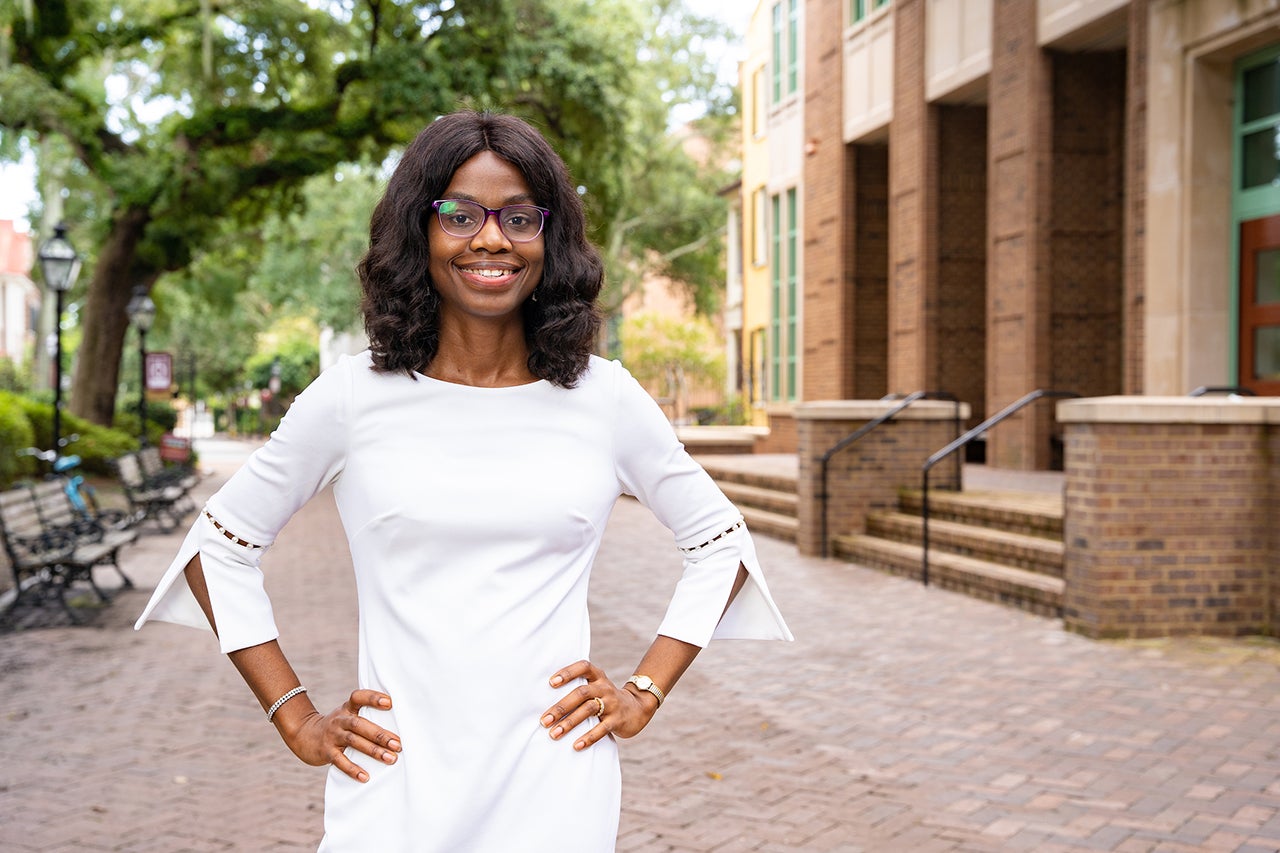Olufunke “Funke” Oladimeji is not only tackling a new job at the College of Charleston, she’s coming in as the instructor for a new program — systems engineering. Since accepting the position, Oladimeji has been told that it’s the first engineering major the College has offered in its 250-year history – and a passion of President Andrew T. Hsu, who holds a doctorate in aerospace engineering.
“Everyone I meet tells me ‘no pressure,’” laughs Oladimeji.
The native of Nigeria, who grew up in Lagos, developed her love of engineering from her father – a surveyor whom everyone calls an engineer. Her high school STEM classes cinched her path, but she remained unsure about what kind of engineer she wanted to be. While her brother went into civil engineering, Oladimeji’s school, Covenant University in Ota, Nigeria, chose her major for her. At the time, her only option was a degree in computer engineering.
While in college, Oladimeji grew more interested in the management aspect of engineering. When she arrived at Texas Tech University in Lubbock, she planned to obtain a doctorate in computer engineering, but she couldn’t find a management component. Her graduate advisor recommended she look at systems engineering, and she found her fit.
“Systems engineering is interdisciplinary and multidisciplinary,” explains Oladimeji, who earned both her master’s and doctorate in systems engineering management from Texas Tech. “It integrates and manages complex systems together.”
Several strong candidates were interviewed, but Oladimeji’s merits and performance made her the clear choice.
“Dr. Oladimeji’s research and teaching interests in systems engineering made her stand out from other interviewees,” says Narayanan Kuthirummal, department chair for physics and astronomy and director of the Systems Engineering Program. “We are lucky to have Funke as relatively few qualified women and minority candidates are out there in engineering.”
Kuthirummal; Sebastian van Delden, dean for the School of Sciences and Mathematics; and a team of industry experts collaborated to create a program that delivers the best of systems engineering and liberal arts and sciences. They also made sure that the program’s curriculum fit with the requirements of ABET — the Accreditation Board for Engineering and Technology, Inc.
“Having that support makes coming into this position less overwhelming,” says Oladimeji. “They did everything with the success of students in mind.”
In addition, the major does not fall solely on Oladimeji’s shoulders. There are more than 10 courses from other departments that can be applied to the systems engineering major. One area of great interest to Oladimeji is systems philosophy and how it’s related to systems engineering.
“Through systems philosophy, students will understand the origins of what they are doing,” she says. “Systems engineering originated from systems philosophy and then went on to take the form we see today.”
For the fall semester, Oladimeji is teaching two courses to her 36 incoming students, 13 of whom have already declared themselves as systems engineering majors. She looks forward to building more courses for the program, creating opportunities for hands-on experiences and research projects, and learning more about how the program can benefit the community.
No pressure!
Photo by Mike Ledford




